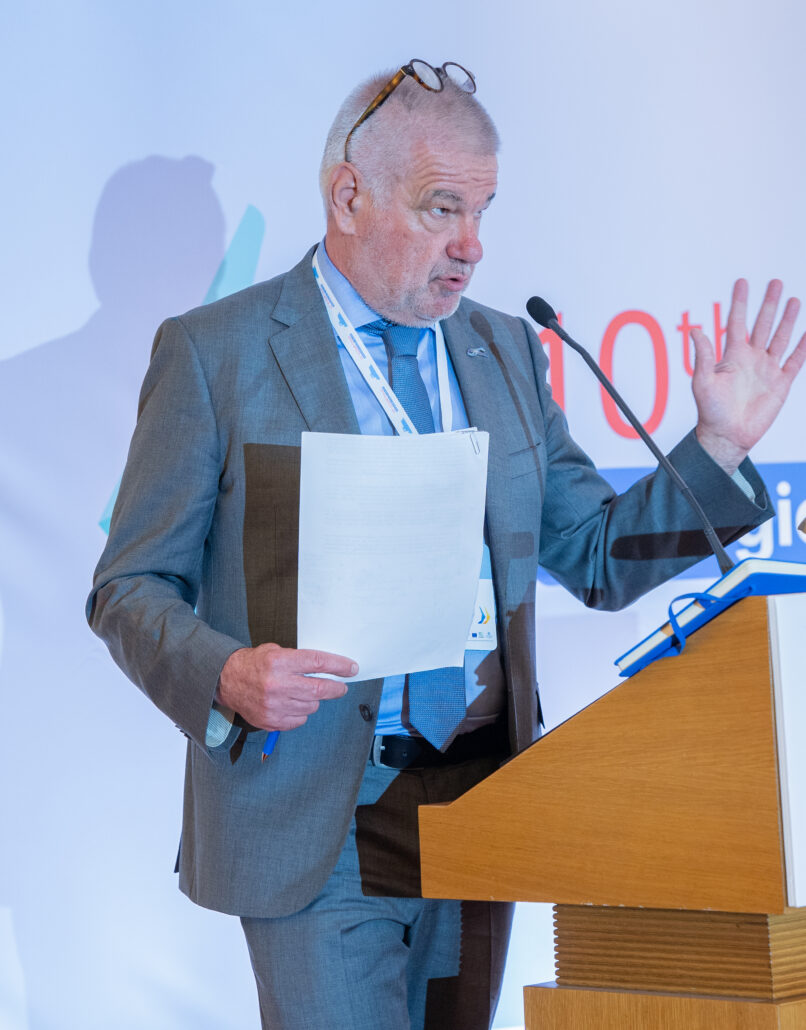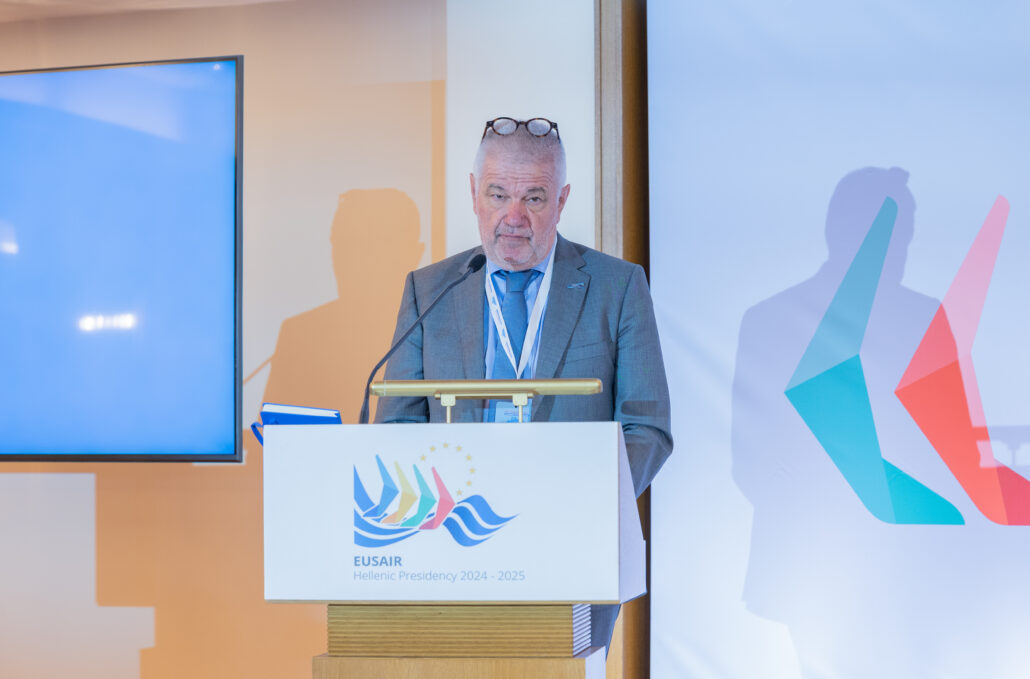10th EUSAIR Annual Forum
Crete, Greece | 6th-7th May 2025The Pillar 3 session of the 10th EUSAIR Annual Forum brought together experts and stakeholders to discuss the protection and sustainable development of the marine and coastal environment in the Adriatic-Ionian region. Focusing on innovative policy approaches and integrated actions, the session examined key challenges and opportunities in preserving marine ecosystems and mitigating environmental pressures. These innovative policy tools are grounded in relevant EU directives and the protocols of the Barcelona Convention, as outlined in the EUSAIR Action Plan.
A core innovation within Pillar 3 lies in the strategic integration of these EU directives with the Barcelona Convention protocols, creating a coherent and synergistic framework for action. This alignment enhances cross-border cooperation and supports the implementation of ecosystem-based management practices across the region.
As a result of this integrated approach, the establishment of blue and green corridors has emerged under Pillar 3. These corridors serve as transboundary ecological networks aimed at preserving biodiversity, improving ecosystem connectivity, and supporting climate resilience. They represent a tangible outcome of regional cooperation and are instrumental in achieving the environmental and sustainable development objectives of both the EUSAIR and the Barcelona Convention.
Five expert panelists shared their insights across a range of topics:
- Ballast water management: Mr. Matej David (Dr. Matej David Consult, Slovenia), and Mr. Ivan Sammut (UNEP/MAP – REMPEC) emphasized the need for enhanced regional cooperation in ballast water management to prevent the spread of invasive species, a critical issue for marine biodiversity and public health.
- EU Marine conservation and restoration policies: Mr. Vedran Nikolić from the Nature Conservation Unit, DG Environment, European Commission provided an update on the EU’s marine conservation and restoration policies, highlighting progress and challenges in achieving the 2030 targets, with a special focus on the Western Balkans.
- INTERREG Italy-Slovenia projects: Ms. Laura Comelli (Managing Authority of INTERREG VI-A Italy-Slovenia Programme - autonomous Region Friuli Venezia Giulia, Italy) showcased several transboundary projects under the INTERREG Italy-Slovenia Programme, demonstrating how Integrated coastal zone management (ICZM) and River basin management (RBM) are critical tools for climate change adaptation and disaster risk prevention.
- Regional governance for marine protection: Mr. Vasilis Gorgolis, Vice Governor for Environmental Issues of Epirus (Region of Epirus, Greece), outlined the role of the Environmental Committee of the Region of Epirus in marine protection, emphasizing how subnational authorities can effectively contribute to regional environmental governance and sustainable management.
- Conservation of marine species: Prof. Antonios Mazaris (Department of Ecology, School of Biology, Aristotle University of Thessaloniki, Greece) and Prof. Stelios Katsanevakis (Department of Marine Sciences, University of the Aegean, Greece) presented research on the conservation of emblematic marine species in the Ionian Sea, underscoring the importance of scientific initiatives in preserving marine biodiversity.
The session highlighted the critical role of innovation and collaboration in addressing marine and coastal challenges. Participants emphasized that achieving long-term sustainability requires a holistic approach that includes not only policy and scientific initiatives but also strong governance at all levels. One of the key conclusions was that fostering greater regional cooperation across borders, particularly through initiatives like INTERREG and DGs centralized calls, is essential for tackling shared environmental challenges.
“Regional cooperation is not merely a necessity—it is a strategic imperative for securing the long-term sustainability of the Adriatic-Ionian Sea,” was the central message echoed by all expert panelists. The discussion highlighted the critical role of local and regional governance in addressing global environmental challenges through integrated, cross-sectoral approaches.
Key tools such as coastal and marine spatial planning, ecosystem-based management, and ballast water management are essential for enhancing ecosystem services, improving ecological resilience, and reducing pressures from maritime activities. These coordinated actions contribute directly to the objectives of the EUSAIR Pillar 3 and align with the priorities of the European Green Deal and the EU Biodiversity Strategy.
By protecting marine biodiversity and mitigating transboundary threats—such as the introduction of invasive species through ballast water—these measures support the development of a resilient and sustainable blue economy across the Adriatic-Ionian region, ensuring long-term environmental health and socio-economic benefits for coastal communities.
As the region continues to face environmental pressures—ranging from invasive species and climate change to biodiversity loss—the session reinforced the need for timely, well-coordinated, and multi-dimensional actions to protect this invaluable marine environment. Moving forward, the commitment to science-based decision-making and collaborative approaches will remain central to the EUSAIR strategy and the future of the Adriatic-Ionian region.











